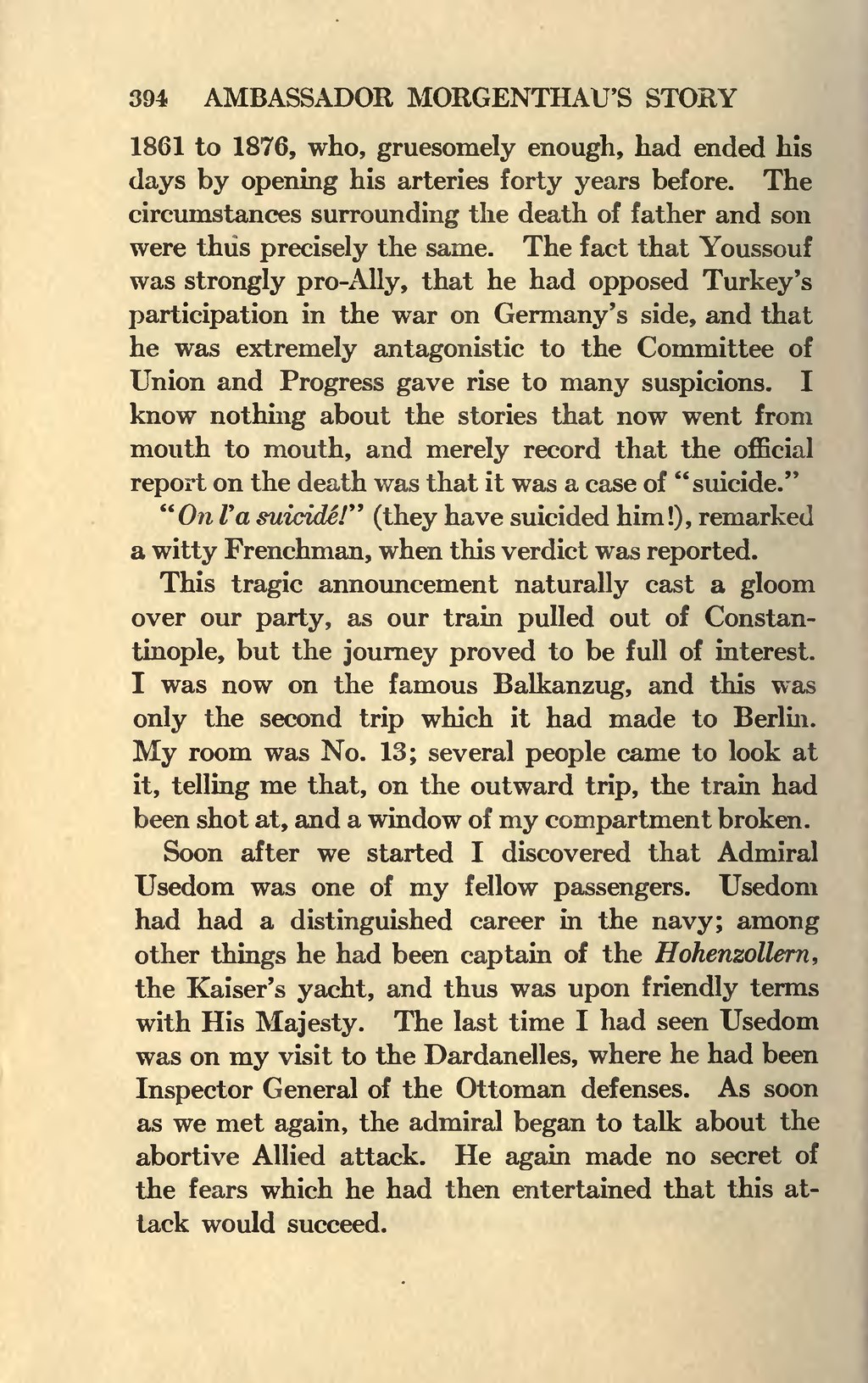1861 to 1876, who, gruesomely enough, had ended his days by opening his arteries forty years before. The circumstances surrounding the death of father and son were thus precisely the same. The fact that Youssouf was strongly pro-Ally, that he had opposed Turkey's participation in the war on Germany's side, and that he was extremely antagonistic to the Committee of Union and Progress gave rise to many suspicions. I know nothing about the stories that now went from mouth to mouth, and merely record that the official report on the death was that it was a case of "suicide."
"On l'a suicidé!" (they have suicided him!), remarked a witty Frenchman, when this verdict was reported.
This tragic announcement naturally cast a gloom over our party, as our train pulled out of Constantinople, but the journey proved to be full of interest. I was now on the famous Balkanzug, and this was only the second trip which it had made to Berlin. My room was No. 13; several people came to look at it, telling me that, on the outward trip, the train had been shot at, and a window of my compartment broken.
Soon after we started I discovered that Admiral Usedom was one of my fellow passengers. Usedom had had a distinguished career in the navy; among other things he had been captain of the Hohenzollern, the Kaiser's yacht, and thus was upon friendly terms with His Majesty. The last time I had seen Usedom was on my visit to the Dardanelles, where he had been Inspector General of the Ottoman defenses. As soon as we met again, the admiral began to talk about the abortive Allied attack. He again made no secret of the fears which he had then entertained that this attack would succeed.
